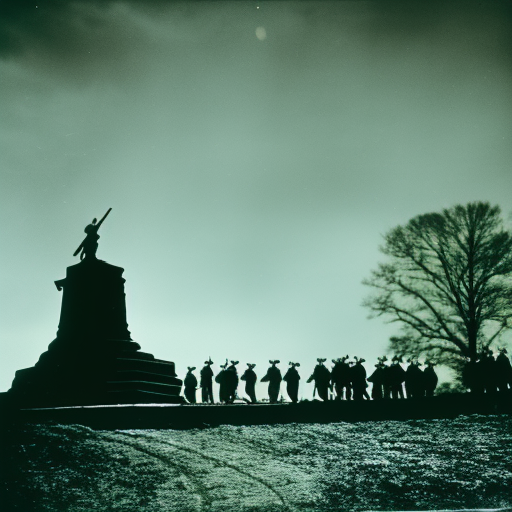Battle of Princeton: Turning Point in the American Revolutionary War
The Battle of Princeton, fought on January 3, 1777, was a pivotal engagement in the American Revolutionary War. It marked a significant turning point in the war and boosted the morale of the American forces after a series of defeats. The battle took place in Princeton, New Jersey, and pitted General George Washington’s Continental Army against British forces led by Lieutenant Colonel Charles Mawhood.
The Context:
After suffering a series of defeats in the latter half of 1776, Washington’s army had been forced to retreat across New Jersey. The British, under the command of General William Howe, had captured New York City and were pursuing the American forces. Washington’s army was demoralized and in desperate need of a victory to boost morale and reinvigorate the cause of independence.
The Plan:
Washington devised a daring plan to launch a surprise attack on the British garrison in Princeton. He divided his forces, leaving a small contingent to maintain campfires and make noise to deceive the British into thinking the main army was still encamped. Meanwhile, Washington led the majority of his troops on a night march to Princeton, aiming to catch the British off guard.
The Battle:
At dawn on January 3, Washington’s forces launched their attack on the British garrison in Princeton. The American troops, led by General Hugh Mercer, engaged the British in a fierce battle near the Princeton University campus. Despite initial success, the Americans were pushed back and Mercer was mortally wounded. However, Washington rallied his troops and led a counterattack, personally leading a charge against the British forces. This unexpected assault caught the British off guard, and they began to retreat.
The Turning Point:
The Battle of Princeton proved to be a turning point in the Revolutionary War. It demonstrated Washington’s strategic brilliance and boosted the morale of his troops. The victory at Princeton, following the successful crossing of the Delaware River and the Battle of Trenton just days earlier, showed that the American forces were capable of defeating the British. This success encouraged more men to join the Continental Army and bolstered support for the cause of independence.
The Aftermath:
Following the battle, Washington’s army continued to harass British forces in New Jersey, launching small-scale attacks and disrupting supply lines. The British were forced to withdraw from many of their outposts in the state, and Washington’s army gained valuable momentum. The Battle of Princeton also had political implications, as it demonstrated to foreign powers, particularly France, that the American cause was not lost and that the Continental Army was a force to be reckoned with.
Legacy:
The Battle of Princeton is remembered as one of the key victories for the American forces during the Revolutionary War. It boosted morale, inspired new recruits, and demonstrated Washington’s leadership abilities. The battle also highlighted the importance of strategic planning and the element of surprise in warfare. The victory at Princeton helped to solidify the American cause and set the stage for future successes in the war.
In conclusion, the Battle of Princeton was a crucial turning point in the American Revolutionary War. It showcased Washington’s strategic brilliance, boosted the morale of the American forces, and demonstrated that the Continental Army was a formidable opponent. The victory at Princeton helped to shift the momentum of the war in favor of the American cause and set the stage for future successes in the fight for independence.












